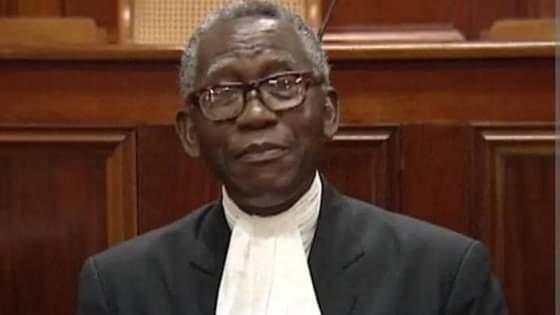National consultative workshop reviews NGO policy regulations
Kenema, Apr. 16 (SLENA) – The Non- Governmental Organization (NGO) Unit in the Ministry of Finance and Economic Development (MoFED) in collaboration with UNICEF Wednesday week continued the National Consultative workshop on the review of 2009 Non- Governmental Organizations policy Regulation at the Rendezvous Guest House Reservation in Kenema, Eastern province.
The objectives of the workshop were as follows:
. To develop a robust operational regulatory manual for the benefit of ngos, civil societies and other stakeholders;
. To address critical gaps that were not addressed in the 2009 NGO Policy Framework NAMELY, eligibility criteria, GST exemption and taxes, payment of fees to local NGOs, revenue collection, duty waivers, etc.
. To strengthen the machinery for monitoring &evaluating the activities of NGOs so that their operations are in line with the provisions of the laws of Sierra Leone, the Nation’s Agenda for Prosperity, post Ebola recovery and the expectations of the donors and target beneficiaries.
. to review the institutional organizational arrangements and strengthen coordination between the NGO Secretariat at MoFED, SLANGO, local councils and other partners and stakeholders with a view to streamlining registration process, payment of fees and receipt of duty waiver concessions.
Delivering the keynote address on behalf of the Minister of state in the Ministry of Finance and Economic Development, Eric Masallay, who is Monitoring and Evaluation Officer at the NGO unit in the Ministry of Finance and Economic Development, stated that it is well over five years that the revised policy has been in operation, adding that naturally situations would have changed, resulting in some hiccups in the implementation of the guidelines for one reason or the other.
He said his ministry therefore saw the need for a stakeholders review to look into the various issues of concern to all parties and called for frank discussions during the consultative workshop on the grey areas, as adequately addressing the weaknesses in the current policy will be of immense benefit to the country.
He grey areas, he said include, Registration, GST Exemption and other taxes; Capacity Building for local NGOS, Duty waivers, Revenue collection, Trade Link, Strengthening of Monitoring and Evaluation, and Updating of mapping tools.
Mr. Massalay extended his appreciation of the contributions made by NGOs in various parts of the country through the provision of shelter, education, healthcare facilities, water and sanitation, training and other activities of sustenance in urban and rural areas.
He noted that the government is committed to foster the smooth operations of NGOs without compromising the principles of accountability and transparency and encouraged all development partners to adhere to these principles, especially in dealings with target beneficiaries.
He maintained that as partners in development, their prime goal is to reduce poverty while the Government, in collaboration with development partners is poised to rebuild the economy, saying it was expedient to re- emphasis the need for partnership among NGOs.
He stressed that the expectation of government is that instead of NGOs spreading out their activities, which limits visible impacts, they should concentrate on few lines of activities in a demarcated area in order to create meaningful impact.
The M&E officer pointed out that in order to underscore the importance of NGOs and their activities in Sierra Leone’s economy, they have negotiated and agreed on the payment of residence and work permits for expatriates, making it clear that expatriates will now have to pay Le 750,000.000 for residence and work permits, respectively.
He said all Expatriates are therefore urged to comply with the new arrangement.
In his statement, UNICEF Representative William Banya, thanked the various technical Committees for the review of the 2009 NGO policy for enhancing a participatory review process, amidst other priorities in the fight against the Ebola virus disease, while commending the Government as well as the many NGOs for their relentless efforts to fight Ebola, adding that the Government had done a fantastic job.
He said the review of the 2009 NGO policy will further strengthen the coordination role of government in the different sectors and will further enhance the effectiveness of the Local Councils in their convening and coordination at sub -national level.
William Banya said the review will guide programmes and sectoral activities of NGOs – both national and international – to ensure improved and sustainable coordination and monitoring of emergency-related and development interventions in the country.
He maintained that with the current low trend in the number of Ebola positive cases in the country, there is an urgent need to promote effective mobilization, allocation and monitoring of aid resources to deliver development programmes for communities, noting that it will uphold the principles of mutual accountability and strengthen partnerships between the Government and its development partners.
He explained that it is in support of this urgent need that UNICEF and the Ministry of Finance and Economic Development in collaboration with key MDAs and other stakeholders developed a strategic operational plan to review the policy. He further stated that technical working groups have been formed to ensure that regional consultations and thematic discussions happen in a consultative and participatory manner to promote ownership of the reviewed 2015 NGO Policy Regulations.
The UNICEF Representative highlighted the overarching objective of UNICEF support to review the 2009 NGO. .
In her opening remarks, the National Coordinator of the Sierra Leone Association of Non- Governmental Organizations, Shellac Davies, first thanked the Minister of Finance and Economic Development, Dr Kaifala Marah for the development of the Mano River Union post Ebola Recovery Strategy and ensuring that the post Ebola Recovery Strategy is firmly anchored on the New Deal principles.
She added that Government, donor partners, civil society and private sector are the main economic actors that contribute to political and socio – development of any nation, stating that each responds to development challenges in different but complementary ways, with different answers.
The representative of the Mayor of Kenema City and the Provincial Secretary, Eastern Region, George Pennyikie made meaningful contributions.
Earlier, the National NGO Coordinator in the Ministry of Finance and Economic Development, Mr. Solomon Scott who also chaired the program welcomed participants to the program.
By Hawanatu Bockari, Credit SLENA
Stay with Sierra Express Media, for your trusted place in news!
© 2015, https:. All rights reserved.






